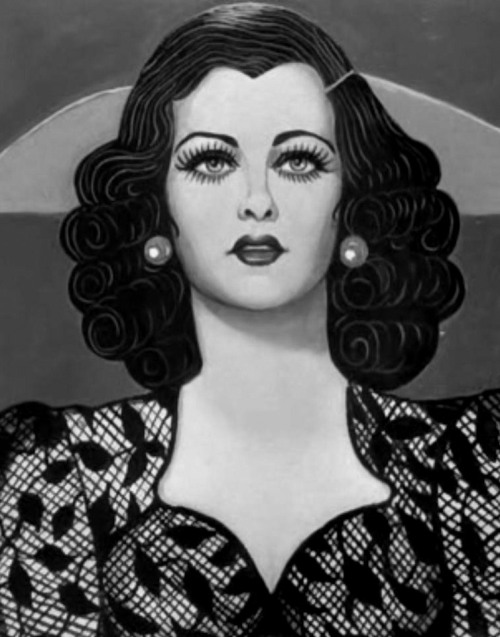Scarlet Street (1945) Audio Commentary
3/ITEMS/SCARLETSTREET1945ROBCARAVAGGIO_201303/SCARLET%20STREET%20%281945%29%20ROB%20CARAVAGGIO.MP3•エピソードのホーム
Manage episode 157646505 series 1229059
コンテンツは Rob Caravaggio によって提供されます。エピソード、グラフィック、ポッドキャストの説明を含むすべてのポッドキャスト コンテンツは、Rob Caravaggio またはそのポッドキャスト プラットフォーム パートナーによって直接アップロードされ、提供されます。誰かがあなたの著作物をあなたの許可なく使用していると思われる場合は、ここで概説されているプロセスに従うことができますhttps://ja.player.fm/legal。
 |
| The "self portrait" of Kitty March, Joan Bennett's fast-talking femme fatale who steals Edward G. Robinson's heart in Fritz Lang's film noir, Scarlet Street |
RC-2013-108: The Film Noir Series—Scarlett Street (1945)
Your browser does not support this audio
Ask a person to name her five favorite Fritz Lang films, and you're not likely to hear Scarlet Street. Yet it has all we've come to love about Lang—and about film noir. Inside the dusty B-movie packaging we find a big star, Edward G. Robinson, playing somewhat against type as a meek cashier named Chris Cross. As we watch the noir vortex suck him in, my heavily shadowed commentary addresses the ongoing debate over film noir's definition, the way Fritz Lang utilizes his roots in German expressionism, and the snappy dialogue of Dudley Nichols' screenplay. I'm also able to put my love of the film aside long enough to discuss the fascinating life and career of Robinson and the even more fascinating life of Joan Bennett, the femme fatale who would see life dangerously imitate art only a few years later. You have my permission to pronounce "film noir" any way you like. To sync up, hit "pause" just after the old Universal logo fades away and the "Walter Wanger Presents" title card takes over the screen.
F.Y.I., This film belongs to the public domain. It may therefore be downloaded, legally, with impunity.
Show Notes
- I referenced this biography of E.G.R. a couple of times
- All about Joan Bennett and that deadly love triangle here
- More on the definition of film noir
31 つのエピソード




